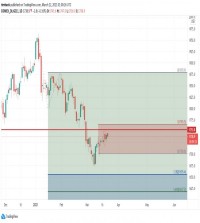|
Opalesque Industry update - The Group of Central Bank Governors and Heads of Supervision, the oversight body of the Basel Committee on Banking Supervision, met on 10 January at the Bank for International Settlements. It welcomed the substantial progress of the Basel Committee to translate the Group’s September 2009 agreements into a concrete package of measures, as elaborated in the Committee’s 17 December 2009 Consultative proposals for Strengthening the resilience of the banking sector and the International framework for liquidity risk measurement, standards and monitoring. Governors and Heads of Supervision requested the Committee to deliver a fully calibrated and finalised package of reforms by the end of this year. President Jean-Claude Trichet, who chairs the Group, emphasised that “timely completion of the Basel Committee reform programme is critical to achieving a more resilient banking system that can support sound economic growth over the long term.” Central Bank Governors and Heads of Supervision welcomed the Basel Committee’s focus on both microprudential reforms to strengthen the level and quality of international capital and liquidity standards, as well as the introduction of a macroprudential overlay to address procyclicality and systemic risk. They also provided guidance and noted the importance of making progress in the following key areas: Provisioning: It is essential that accounting standards setters and supervisors develop a truly robust provisioning approach based on expected losses (EL). Building on the Basel Committee’s August 2009 Guiding Principles for the replacement of IAS 39, a sound EL provisioning approach should achieve the following key objectives: 1) address the deficiencies of the incurred loss approach without introducing an expansion of fair value accounting, 2) promote adequate and more forward looking provisioning through early identification and recognition of credit losses in a consistent and robust manner, 3) address concerns about procyclicality under the current incurred loss provisioning model, 4) incorporate a broader range of credit information, both quantitative and qualitative, 5) draw from banks’ risk management and capital adequacy systems and 6) be transparent and subject to appropriate internal and external validation by auditors, supervisors and other constituents. So-called “through-the-cycle” approaches that are consistent with these principles and which promote the build up of provisions when credit exposures are taken on in good times that can be used in a downturn would be recognised. The Basel Committee should translate these principles into a practical proposal by its March 2010 meeting for subsequent consideration by both supervisors and accounting standards setters. Introducing a framework of countercyclical capital buffers: Such a framework could contain two key elements that are complementary. First, it is intended to promote the build-up of appropriate buffers at individual banks and the banking sector that can be used in periods of stress. This would be achieved through a combination of capital conservation measures, including actions to limit excessive dividend payments, share buybacks and compensation. Second, it would achieve the broader macroprudential goal of protecting the banking sector from periods of excess credit growth through a countercyclical capital buffer linked to one or more credit variables. Addressing the risk of systemic banking institutions: Supervisors are working to develop proposals to address the risk of systemically important banks (SIBs). To this end, the Basel Committee has established a Macroprudential Group. The Committee should develop a menu of approaches using continuous measures of systemic importance to address the risk for the financial system and the broader economy. This includes evaluating the pros and cons of a capital and liquidity surcharge and other supervisory tools as additional possible policy options such as resolution mechanisms and structural adjustments. This forms a key input to the Financial Stability Board’s initiatives to address the “too-big-to-fail” problem. Contingent capital: The Basel Committee is reviewing the role that contingent capital and convertible capital instruments could play in the regulatory capital framework. This includes possible entry criteria for such instruments in Tier 1 and/or Tier 2 to ensure loss absorbency and the role of contingent and convertible capital more generally both within the regulatory capital minimum and as buffers. Liquidity: Based on information collected through the quantitative impact assessment, the Committee should flesh out the details of the global minimum liquidity standard, which includes both the 30-day liquidity coverage ratio and the longer term structural liquidity ratio. Central Bank Governors and Heads of Supervision will review concrete proposals on each of these topics later this year. They endorsed the Committee’s approach to extensive consultation on and comprehensive assessment of the proposed reforms, covering both the impact on the banking sector and the broader economy, before arriving at a final calibration of the minimum level of capital and the buffers above the minimum at the end of this year. They stressed that the aim of the new global standards should be to achieve a better balance between banking sector stability and sustainable credit growth. President Trichet noted that “the Group of Central Bank Governors and Heads of Supervision will provide strong oversight of the work of the Basel Committee during this phase, including both the completion and calibration of the reforms.” The fully calibrated set of standards will be developed by the end of 2010 to be phased in as financial conditions improve and the economic recovery is assured with the aim of implementation by the end of 2012. This includes appropriate phase-in measures and grandfathering arrangements for a sufficiently long period to ensure a smooth transition to the new standards.
The Group of Central Bank Governors and Heads of Supervision is the oversight body of the Basel Committee on Banking Supervision and is comprised of the same member jurisdictions as the Committee. The Committee’s Secretariat is based at the Bank for International Settlements in Basel, Switzerland. Website: www.bis.org
|
Industry Updates
Update: Group of central bank governors and heads of supervision reinforces Basel Committee reform package
Monday, January 11, 2010
|
|





 RSS
RSS







